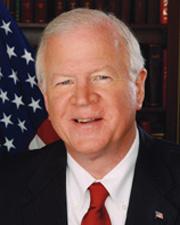0
0
0
Estate Tax Relief Act of 2001
1/16/2023, 2:48 PM
Congressional Summary of HR 1437
Estate Tax Relief Act of 2001 - Amends the Internal Revenue Code to: (1) reduce the maximum estate and gift tax rate to 45 percent; (2) replace the unified credit against the estate and gift taxes with a unified exemption amount of $10 million; and (3) increase from $10,000 to $50,000 the annual gift exclusion amount.
Read the Full Bill
Current Status of Bill HR 1437
Bill HR 1437 is currently in the status of Bill Introduced since April 4, 2001. Bill HR 1437 was introduced during Congress 107 and was introduced to the House on April 4, 2001. Bill HR 1437's most recent activity was See H.R.1836. as of August 13, 2001
Bipartisan Support of Bill HR 1437
Total Number of Sponsors
1Democrat Sponsors
0Republican Sponsors
1Unaffiliated Sponsors
0Total Number of Cosponsors
3Democrat Cosponsors
0Republican Cosponsors
3Unaffiliated Cosponsors
0Policy Area and Potential Impact of Bill HR 1437
Primary Policy Focus
TaxationPotential Impact Areas
- Cost of living adjustments
- Economics and Public Finance
- Estate tax
- Gift tax
- Indexing (Economic policy)
- Tax credits
- Tax cuts
- Tax exclusion
- Tax exemption
- Tax rates
Alternate Title(s) of Bill HR 1437
Estate Tax Relief Act of 2001
To amend the Internal Revenue Code of 1986 to reduce the maximum estate and gift tax rate to 45 percent, to replace the unified credit against the estate and gift tax with a unified exemption amount, and to increase the gift exclusion amount.
Estate Tax Relief Act of 2001
Comments
Sponsors and Cosponsors of HR 1437
Latest Bills
ESTUARIES Act
Bill HR 3962December 13, 2025
Federal Maritime Commission Reauthorization Act of 2025
Bill HR 4183December 13, 2025
National Defense Authorization Act for Fiscal Year 2026
Bill S 1071December 13, 2025
Enduring Justice for Victims of Trafficking Act
Bill S 2584December 13, 2025
Technical Corrections to the Northwestern New Mexico Rural Water Projects Act, Taos Pueblo Indian Water Rights Settlement Act, and Aamodt Litigation Settlement Act
Bill S 640December 13, 2025
Incentivizing New Ventures and Economic Strength Through Capital Formation Act of 2025
Bill HR 3383December 13, 2025
BOWOW Act of 2025
Bill HR 4638December 13, 2025
Northern Mariana Islands Small Business Access Act
Bill HR 3496December 13, 2025
Wildfire Risk Evaluation Act
Bill HR 3924December 13, 2025
Energy Choice Act
Bill HR 3699December 13, 2025
Economic Growth and Tax Relief Reconciliation Act of 2001
Bill HR 1836January 16, 2023



